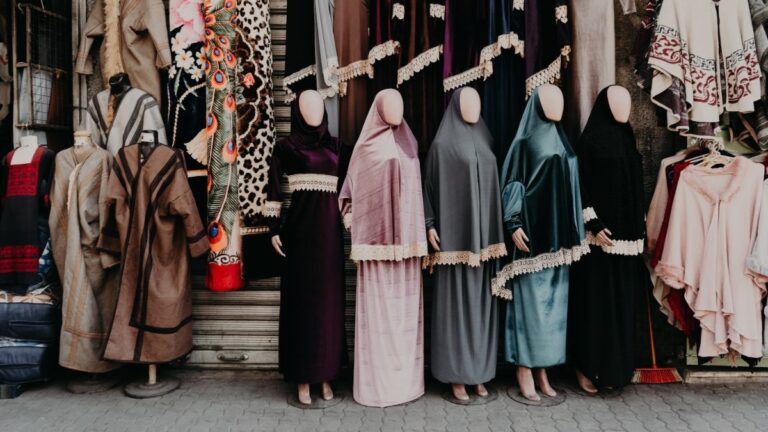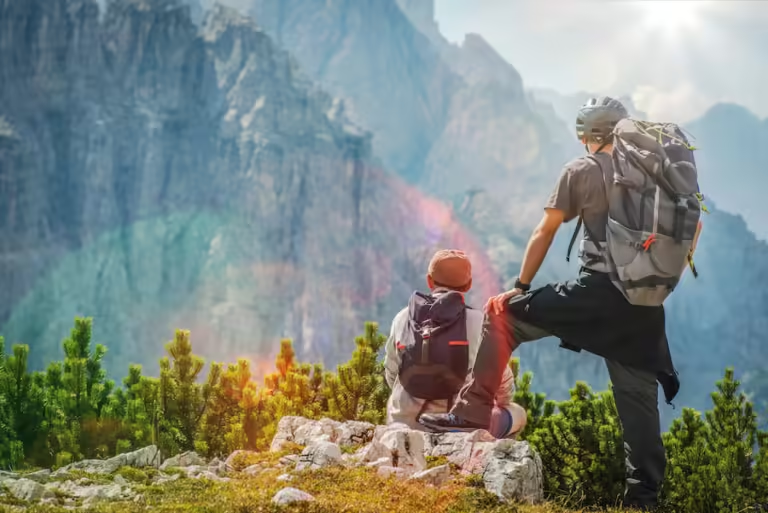Exploring the Rich Culture and History of Guatemala
Welcome to the land of vibrant colors, rich history, and diverse cultures – Guatemala! Nestled in Central America, this captivating country has a story to tell that dates back centuries. From ancient Mayan civilizations to Spanish colonial influences, Guatemala’s cultural tapestry is woven with fascinating tales waiting to be explored. Join us on a virtual journey as we delve into the intriguing past and dynamic present of this hidden gem in the heart of Latin America. Let’s uncover the treasures that make Guatemala a must-visit destination for history buffs, adventure seekers, and culture enthusiasts alike!
Outline: Exploring the Rich Culture and History of Guatemala
Embark on a cultural odyssey through Guatemala’s captivating history, where ancient ruins whisper tales of the mighty Mayan civilization that once thrived in this land. The Pre-Columbian era paints a vivid picture of advanced societies and architectural wonders that continue to awe visitors today.
The Spanish era brought a wave of colonization and influence that shaped Guatemala’s identity, blending indigenous traditions with European customs. Independence ushered in a new chapter marked by struggles for autonomy and unity within Central America.
Dive into Guatemala’s linguistic diversity, with Spanish as the official language alongside 23 indigenous languages spoken across the country. The integration of indigenous communities in education reflects the nation’s commitment to preserving its heritage while embracing modernity.
Experience firsthand the fusion of Catholicism with traditional Mayan beliefs, creating a unique religious landscape where rituals and ceremonies intertwine harmoniously. Education plays a crucial role in shaping future generations and promoting cultural awareness among Guatemalans.
History of Guatemala
Guatemala’s history is a tapestry woven with rich threads of diverse cultures and tumultuous events that have shaped the nation into what it is today.
In the Pre-Columbian era, Guatemala was home to advanced civilizations like the Maya, known for their impressive architectural achievements and sophisticated hieroglyphic writing system.
The Spanish conquest in 1519 marked the beginning of a new chapter in Guatemala’s history, bringing colonization and assimilation under Spanish rule until independence in 1821.
The period between 1821 and 1847 saw Guatemala as part of Central America before gaining full sovereignty. This era laid the foundation for its modern political landscape.
With over twenty languages spoken in Guatemala, including Spanish, Mayan languages hold a significant place in its cultural identity.
Indigenous integration efforts focus on promoting bilingual education to preserve indigenous languages and traditions within modern society. Religion plays a prominent role with Roman Catholicism being predominant among Guatemalans.
Pre-Columbian Era
Guatemala’s Pre-Columbian era is a captivating chapter in the country’s history. Before the arrival of European colonizers, Guatemala was home to Mayan civilizations that thrived for centuries. The ancient Maya were known for their advanced knowledge in agriculture, astronomy, and architecture.
The ruins of Tikal and other archaeological sites serve as a reminder of the grandeur and ingenuity of these early inhabitants. Their intricate hieroglyphic writing system and complex calendar are still sources of fascination for historians and archaeologists today.
Trade networks connected the Mayan cities, allowing for cultural exchange and economic development. The diverse landscapes of Guatemala provided fertile ground for agricultural practices like cultivating corn, beans, squash, and cacao.
The Pre-Columbian era laid the foundation for Guatemala’s rich cultural heritage that continues to influence modern society. It serves as a testament to the resilience and creativity of indigenous peoples who shaped this land long before it became known by its current name.
Spanish Era (1519–1821)
The Spanish Era in Guatemala, spanning from 1519 to 1821, left a lasting impact on the country’s culture and history. When the Spanish conquistadors arrived in the early 16th century, they encountered vibrant indigenous civilizations that had thrived for centuries.
With their arrival came a complex intertwining of cultures – leading to changes in language, religion, and societal structures. The Spaniards imposed their own systems of governance and introduced new crops such as sugarcane and coffee that transformed Guatemala’s economy.
Despite colonization bringing significant challenges like forced labor and diseases that decimated indigenous populations, it also led to the blending of European and indigenous traditions – creating a unique mestizo identity that defines modern Guatemala.
The colonial period saw the construction of impressive churches, cathedrals, and government buildings that still stand today as reminders of this tumultuous yet transformative era in Guatemalan history.
Independence and Central America (1821–1847)
After gaining independence from Spain in 1821, Guatemala became a part of the United Provinces of Central America, along with Costa Rica, El Salvador, Honduras, and Nicaragua. This union aimed to promote unity among these newly independent nations but faced challenges due to political differences and power struggles.
During this period, Guatemala experienced significant political instability as different factions vied for control over the region. The struggle for power often led to conflicts and disputes within Central America.
Despite efforts to maintain a united front, disagreements ultimately resulted in the dissolution of the United Provinces by 1847. Guatemala then emerged as an independent state under various leaderships that shaped its future trajectory.
This era marked a pivotal moment in Guatemalan history as it navigated through shifting alliances and internal strife while striving to establish its identity as a sovereign nation amidst the complex dynamics of Central America.
Languages
Guatemala boasts a diverse linguistic landscape, with Spanish being the official language spoken by the majority of the population. However, the country is also home to over 20 indigenous languages that reflect its rich cultural heritage. These languages are an integral part of Guatemala’s identity and history, representing the traditions and customs of various indigenous groups.
The government has recognized the importance of preserving these languages and promoting bilingual education in schools to ensure their survival for future generations. This effort not only helps preserve cultural diversity but also fosters inclusivity and respect for Guatemala’s indigenous communities.
By embracing multilingualism, Guatemala celebrates its linguistic diversity as a source of pride and strength. The coexistence of different languages in daily life adds depth to the country’s cultural tapestry, making it a vibrant mosaic where each language contributes to the beauty and uniqueness of Guatemala.
Indigenous Integration and Bilingual Education
Guatemala’s rich tapestry of culture is intricately woven with the vibrant threads of its indigenous communities. The country celebrates diversity through initiatives like bilingual education, which aims to bridge linguistic gaps and foster integration.
Indigenous languages are not only preserved but also promoted in educational settings, allowing students to embrace their heritage while acquiring essential skills for the future. This inclusive approach recognizes the value of cultural diversity and empowers indigenous peoples to fully participate in society.
Bilingual education in Guatemala goes beyond language instruction; it serves as a tool for social cohesion and mutual understanding among different ethnic groups. By embracing linguistic diversity, the country paves the way for a more harmonious coexistence where all voices are heard and respected.
Through innovative pedagogical approaches that honor both traditional knowledge and modern teachings, Guatemala sets an example of how indigenous integration can thrive within a multicultural framework. In this evolving landscape, bilingual education acts as a catalyst for unity and empowerment among diverse communities across the nation.
Religion
Guatemala’s rich cultural tapestry is intricately woven with a diverse array of religious beliefs and practices. From the ancient Mayan traditions that have persisted for centuries to the influence of Catholicism brought by Spanish colonizers, religion plays a significant role in shaping Guatemalan society.
The majority of Guatemalans identify as Roman Catholic, with rituals and celebrations deeply ingrained in their daily lives. However, the country also boasts a vibrant mix of Protestant denominations, including Evangelical and Pentecostal churches that have gained popularity in recent decades.
Mayan spirituality remains an integral part of many indigenous communities, blending ancient customs with elements of Catholicism. Rituals such as Maximon ceremonies and traditional Mayan healings continue to be practiced alongside Christian observances.
Religious festivals like Semana Santa (Holy Week) showcase this unique blend of traditions, drawing crowds from across Guatemala and beyond. The colorful processions, elaborate floats, and intricate carpets made from dyed sawdust are testaments to the deep spiritual devotion found throughout the country.
Education
Guatemala places a strong emphasis on education, recognizing it as a vital tool for empowerment and progress. The country has made significant strides in expanding access to education for all its citizens, aiming to break barriers that hinder learning opportunities. With various educational initiatives and reforms in place, Guatemala is working towards enhancing the quality of education provided to its people.
The government has been actively involved in promoting educational programs and investing resources into improving school infrastructure and facilities across the nation. Efforts are being made to increase literacy rates and ensure that children have the opportunity to receive a well-rounded education that prepares them for future success.
Despite facing challenges such as limited resources and infrastructure disparities between urban and rural areas, Guatemala remains committed to advancing its educational system. By prioritizing education, the country is fostering a brighter future for its youth and nurturing a generation equipped with the knowledge and skills needed to thrive in an ever-changing world.
Indigenous Representation
Guatemala boasts a diverse population with a rich tapestry of indigenous cultures. The country is home to over 20 different Mayan groups, each with its own unique traditions and languages. Despite this cultural wealth, indigenous communities have historically faced marginalization and discrimination in various aspects of Guatemalan society.
Efforts are being made to improve indigenous representation in politics, education, and other spheres. Organizations advocating for indigenous rights play a crucial role in promoting inclusivity and ensuring that these communities have a voice in decision-making processes.
Indigenous representation goes beyond just numbers; it’s about recognizing the value of diverse perspectives and experiences. By amplifying the voices of indigenous peoples, Guatemala can celebrate its multicultural heritage and work towards a more inclusive society where all individuals are respected and empowered.
Tourism in Guatemala
Guatemala, a country rich in cultural heritage and natural beauty, offers visitors a unique blend of history and adventure. From the bustling markets of Chichicastenango to the ancient Mayan ruins of Tikal, there is something for everyone to explore.
The diverse landscapes of Guatemala – from volcanic peaks to lush rainforests – provide endless opportunities for outdoor enthusiasts. Whether you’re hiking up an active volcano or zip-lining through the jungle canopy, the possibilities are endless.
For those seeking a more relaxed experience, Guatemala’s colonial cities like Antigua offer charming cobblestone streets lined with colorful buildings and picturesque squares. Enjoy traditional Guatemalan cuisine at local cafes and immerse yourself in the vibrant culture.
As you venture off the beaten path, interact with indigenous communities to learn about their traditions and craftsmanship. Support local artisans by purchasing handmade textiles or pottery as souvenirs to cherish your memories of Guatemala forever.
Political System
Guatemala operates under a democratic system with a president serving as both the head of state and government. The political landscape in Guatemala has been marked by periods of instability and corruption, which have posed challenges to the country’s development. The Congress consists of 160 members who are elected every four years, playing a crucial role in shaping legislative decisions.
Political parties in Guatemala often reflect diverse interests and ideologies, making coalitions common for governance. Transparency and accountability remain key areas needing improvement within the political system to ensure effective governance and public trust. Despite ongoing efforts to strengthen institutions and combat corruption, significant work is still required to enhance political stability and promote inclusive decision-making processes.
The upcoming elections will be closely watched by both domestic citizens and international observers as Guatemala continues its journey towards building a more robust and transparent political system.
Human Rights
Human rights in Guatemala have been a complex issue, with various challenges and improvements over the years. The country has made strides towards addressing human rights violations through legislative reforms and increased awareness. However, there are still ongoing concerns regarding issues such as inequality, discrimination, and violence.
Despite efforts to improve the situation, marginalized groups continue to face obstacles in accessing their basic rights. Indigenous communities, women, children, and LGBTQ+ individuals often encounter discrimination and lack of protection. Human rights organizations play a crucial role in advocating for these vulnerable populations and pushing for accountability from authorities.
The government’s commitment to upholding human rights is essential for creating a more inclusive society where all citizens can live free from fear or oppression. International pressure and support also contribute to advancing human rights agendas within Guatemala. It is clear that sustained efforts are needed to ensure that everyone’s fundamental freedoms are respected and upheld throughout the country.
Women’s Safety
When traveling to Guatemala, ensuring women’s safety is paramount. Like in any other country, it’s important to be cautious and aware of your surroundings at all times. While Guatemala offers stunning natural beauty and rich cultural experiences, it’s essential to take necessary precautions.
Stick to well-populated areas, especially at night, and avoid walking alone in secluded places. Trust your instincts and if something feels off, don’t hesitate to seek help or move to a safer location. Keep valuable belongings secure and be mindful of pickpockets in crowded areas.
Research safe transportation options beforehand and consider using reputable taxi services or ridesharing apps for added security. It’s advisable to dress modestly and respect local customs to minimize unwanted attention.
By staying informed and taking proactive measures, you can enjoy the wonders of Guatemala while prioritizing your safety as a female traveler.
Health Concerns
When traveling to Guatemala, it’s essential to be mindful of potential health concerns. The country has made significant progress in healthcare but still faces challenges.
One primary concern for travelers is the risk of mosquito-borne illnesses like dengue fever and Zika virus. It is advisable to take precautions such as using insect repellent and wearing long sleeves.
Water quality can vary, so it’s recommended to drink bottled water and avoid consuming ice or uncooked foods from street vendors.
Altitude sickness may also affect visitors due to Guatemala’s varying elevations. Travelers should acclimate slowly and stay hydrated when moving between different altitudes.
Seeking medical advice before your trip and ensuring you have adequate travel insurance can help alleviate any health worries during your visit to this culturally rich destination.
Laws and Cultural Etiquette
Guatemala boasts a rich tapestry of laws and cultural etiquette that are deeply intertwined with its history and traditions. The legal system in Guatemala is based on civil law, heavily influenced by Spanish colonial rule. It’s essential for visitors to respect local customs and adhere to the country’s laws while exploring this vibrant nation.
When it comes to cultural etiquette, Guatemalans place great importance on greetings. A warm handshake or a friendly “Buenos dias” goes a long way in establishing rapport with the locals. Additionally, showing respect towards elders is highly valued in Guatemalan society.
In terms of dress code, modesty is key when visiting religious sites or rural communities. It’s advisable to dress conservatively out of respect for traditional values. Furthermore, being mindful of personal space and refraining from overly affectionate gestures in public settings demonstrates cultural sensitivity.
As you immerse yourself in Guatemala’s diverse landscape and heritage, embracing the local laws and customs will enhance your travel experience while fostering mutual respect between visitors and residents alike.
World Bank Commitments
The World Bank has played a significant role in supporting Guatemala’s development initiatives. By providing financial assistance and expertise, the World Bank has helped the country address social and economic challenges.
Through various projects and programs, the World Bank has committed to promoting sustainable development, reducing poverty levels, and improving infrastructure in Guatemala.
These commitments aim to enhance the quality of life for Guatemalan citizens by investing in education, healthcare, agriculture, and other key sectors.
Additionally, the World Bank works closely with local authorities to ensure that these funds are utilized effectively and transparently for the benefit of the Guatemalan population.
The partnership between Guatemala and the World Bank reflects a shared commitment to fostering growth and prosperity in this diverse Central American nation.
International Relations
Guatemala’s international relations play a critical role in shaping its global standing. The country actively engages with various nations and organizations to foster diplomatic ties, promote trade agreements, and address mutual concerns. Through strategic alliances and multilateral cooperation, Guatemala works towards enhancing its position on the world stage.
Foreign relations are carefully navigated to ensure economic growth, political stability, and social development within the country. By participating in bilateral discussions and international forums, Guatemala aims to strengthen partnerships while safeguarding its national interests. This proactive approach underscores Guatemala’s commitment to fostering positive relationships with other countries.
Military expenditures are monitored closely as part of Guatemala’s foreign policy strategy. The country strives to maintain a balanced defense budget that prioritizes security needs while promoting regional peace and stability. By investing in defense capabilities responsibly, Guatemala asserts itself as a reliable partner in addressing common security challenges across borders.
In navigating the complex landscape of international affairs, Guatemala remains dedicated to upholding principles of sovereignty, non-interference, and cooperation among nations. This steadfast commitment underscores the importance of diplomacy in advancing shared goals while respecting diverse perspectives on global issues.
Foreign Relations
Guatemala’s foreign relations play a crucial role in shaping the country’s place on the global stage. With ties to various countries and international organizations, Guatemala navigates a complex web of diplomatic relationships. These connections influence trade agreements, aid programs, and political alliances.
The country has historically maintained strong bonds with neighboring nations in Central America while also fostering partnerships with countries worldwide. From economic cooperation to cultural exchanges, Guatemala actively engages in diplomacy to promote its interests abroad. This dynamic interaction allows for the exchange of ideas, technologies, and resources that benefit both Guatemala and its international partners.
Through participation in multilateral forums like the United Nations and regional organizations such as SICA (Central American Integration System), Guatemala contributes to discussions on pressing global issues. By collaborating with other nations on matters ranging from climate change to security concerns, Guatemala strives to be an active player in the international community.
In navigating the intricate landscape of foreign relations, Guatemala must balance its domestic priorities with external obligations. The decisions made through these diplomatic channels have far-reaching implications for the country’s development and prosperity.
Military Expenditures
Guatemala’s military expenditures have been a topic of discussion both domestically and internationally. The country has faced various challenges related to its defense budget allocation, with some advocating for increased funding while others emphasize the importance of reallocating resources towards social programs.
In recent years, Guatemala has made efforts to modernize its military equipment and infrastructure to enhance national security capabilities. However, concerns have been raised about the proportion of the national budget dedicated to defense compared to other crucial sectors like healthcare and education.
The balance between maintaining a strong defense force and addressing pressing social issues remains a delicate issue for policymakers in Guatemala. The decisions regarding military expenditures not only impact national security but also influence socio-economic development within the country.
As Guatemala navigates through these complex dynamics, finding a sustainable approach that meets both security needs and societal demands will be key to ensuring long-term stability and prosperity.
Conclusion and Resources
In this diverse and culturally rich country of Guatemala, history, tradition, and modernity intertwine to create a unique tapestry that captivates visitors from around the world.
From the ancient civilizations of the Maya to the colonial influences of the Spanish era, Guatemala’s past is as complex as it is fascinating. The country’s commitment to preserving its indigenous languages and traditions while embracing modern education and technology sets it apart in Central America.
As you explore Guatemala, immerse yourself in its vibrant culture, savor its delicious cuisine, and admire its breathtaking landscapes. From bustling markets to serene lakeshores, there is something for every traveler to discover in this captivating nation.
Whether you are drawn to Guatemala for its rich history or adventurous spirit, one thing is certain – your experience will be unforgettable. So pack your bags, book your ticket, and get ready for an adventure that will leave you with memories to last a lifetime.







